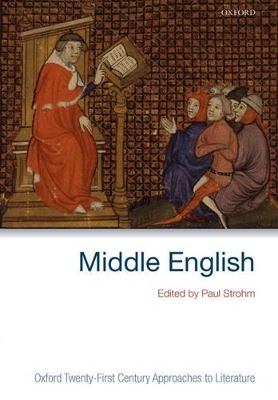Oxford Twenty-First Century Approaches to Literature
1 total work
These original essays mean to provoke rather than reassure, to challenge rather than codify. Instead of summarizing existing knowledge after the fashion of the now-ubiquitous literary 'companions,' these essays aim at opening fresh discussion; instead of emphasizing settled consensus they direct their readers to areas of enlivened and unresolved debate. Although 'major authors' such as Chaucer and Langland are richly represented, many little-known and neglected texts
are considered as well. Analysis is devoted not only to self-sufficient works, but to the general conditions of textual production and reception. Contributors to this collection include some recognized and admired names, but also a good many newer faces: younger scholars whose groundbreaking
research is just coming into full view, and whose perspectives will influence the terms of literary discussion in the decades to come. Encouraged to speculate, they have addressed topics that unsettle previous categories of investigation. Each is oriented toward the emergent, the unfinalized, the yet-to-be-done. Each essay stirs new questions and concludes with suggestions for further reading and investigation that will allow readers to extend their own research into the questions it has
raised.
are considered as well. Analysis is devoted not only to self-sufficient works, but to the general conditions of textual production and reception. Contributors to this collection include some recognized and admired names, but also a good many newer faces: younger scholars whose groundbreaking
research is just coming into full view, and whose perspectives will influence the terms of literary discussion in the decades to come. Encouraged to speculate, they have addressed topics that unsettle previous categories of investigation. Each is oriented toward the emergent, the unfinalized, the yet-to-be-done. Each essay stirs new questions and concludes with suggestions for further reading and investigation that will allow readers to extend their own research into the questions it has
raised.
